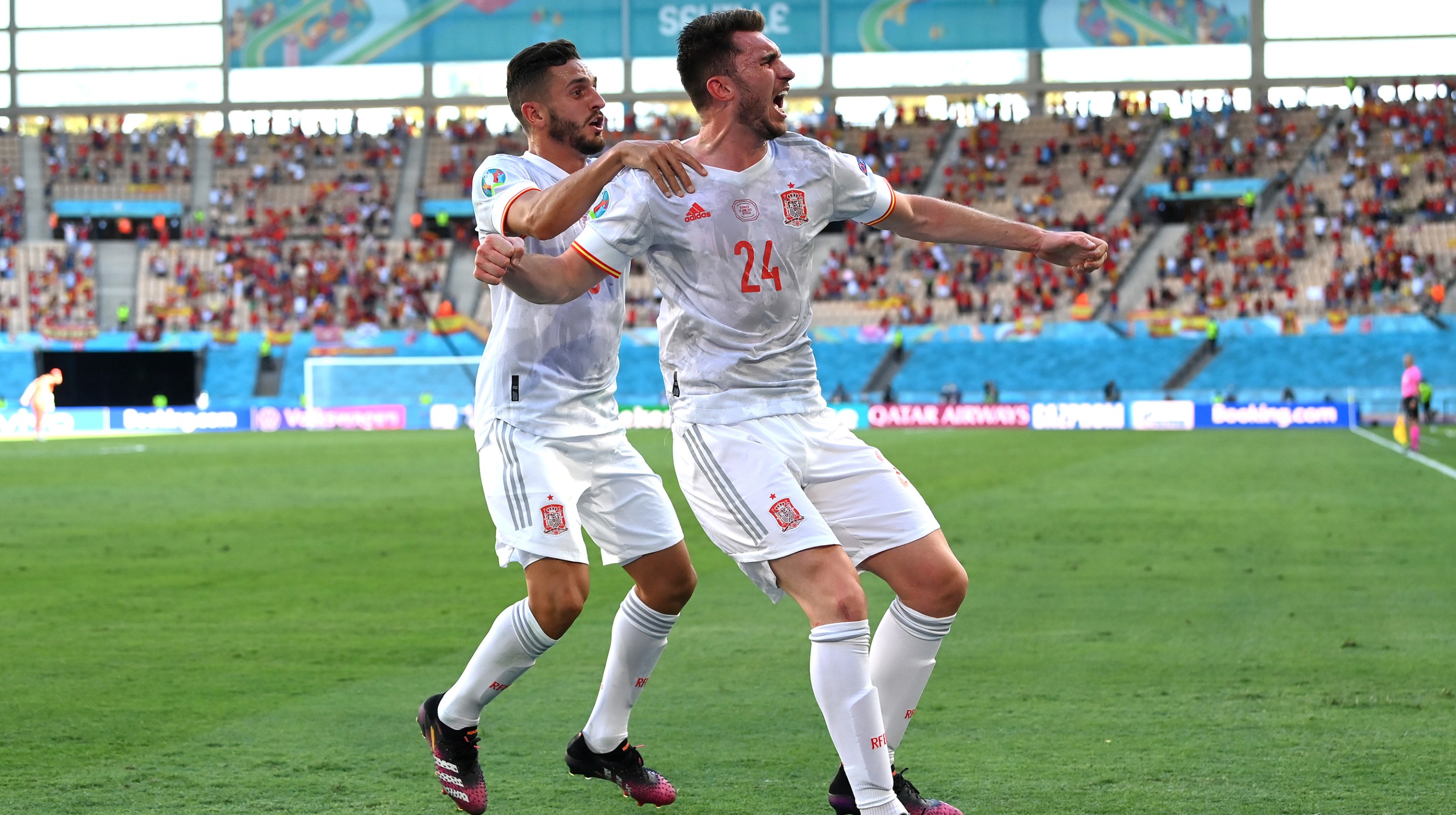All it took for Spain to shake off its tournament doldrums was one of the worst own goals you will ever see. It's unfortunate that it came at the expense of Slovakia and Newcastle United goalkeeper Martin Dubravka just minutes after he saved a penalty, but that's how this sport can be sometimes.
In the 30th minute of Spain's crucial Group E finale against Slovakia, Pablo Sarabia found himself the recipient of an errant clearance and fired a wonderful shot that hit the crossbar and flew high into the sky. On the way down, Dubravka attempted to track the ball and punch it to safety, but instead, he mistimed it and dunked the ball directly into his own net. Spain 1–0, and that would be the closest the game would be for the remaining hour:
DUBRAVKA PUNCHES IT INTO HIS OWN NET 😳 pic.twitter.com/gL7OTrIi1v
— ESPN FC (@ESPNFC) June 23, 2021
It was not the typical kind slump-breaking goal a player or team often scores before going on a tear, but go on a tear Spain did. Three minutes into the first half's stoppage time, it was another unlikely source that doubled Spain's lead, as recent France convert and Manchester City defender Aymeric Laporte finished another sloppy Slovakia clearance-turned-chance with a towering header:
Laporte scores his first goal for Spain 🇪🇸
— ESPN FC (@ESPNFC) June 23, 2021
Great timing 😉 pic.twitter.com/z6NVmchkn5
With that, the rout was on. Spain didn't play all that differently than it had in its first two painful-to-watch matches in the Euros, but everything seemed a lot looser with the win already practically in hand. Passes that just missed before started finding their targets, players like Barcelona's Pedri and PSG's Sarabia went frolicking through the Slovakian defense, and Ferran Torres, another Manchester City player making his tournament debut for Spain, scored a backheel with his first touch of the game:
Cheeky backheel by Ferran Torres 😍😍'
— ESPN FC (@ESPNFC) June 23, 2021
He scored with his first touch of the game 😅 pic.twitter.com/1NY5W2ms9u
At the final whistle, Spain had scored five. Well, it had scored three: Slovakia contributed two own goals to the cause of waking up La Furia Roja, on the way to destroying its own goal difference and its chances to make the knockouts. It was as dominating a performance as anyone has put on during the Euros. It also was a sign that there is a good team hiding somewhere in the Spanish camp, if only the players and manager Luis Enrique can coax it out. That hadn't really happened before Wednesday.
It's here that I must talk about Álvaro Morata. It's rare that a single player so wholly symbolizes a team's issues, but Morata is that for Spain. See, Spain is a team that creates chances. A lot of them. In the first two matches, the team scored one goal but should have probably scored four or five or six. Morata was the goalscorer of that lone tally, against Poland, but he should be in contention for top scorer of the tournament with the chances he's had and flubbed. The Juventus striker is the perfect forward for Spain up until the moment he has to kick the ball in the net; he makes great runs, is often clear on goal from one of the delicious through balls from the midfield, and even provides the team height on set pieces. He just can't score.
Eighteen minutes before his howler, Dubravka was the hero, though it felt like the story of Spain's tournament did just as much to save Morata's 12th minute penalty as the man between the sticks. You can argue that Luis Enrique's decision to have Morata take a penalty after all of his missed chances in the first two games is coaching malpractice, and you could also point out that this is somehow the tournament of missed penalties—at the time of Morata's miss, takers were 5-of-11 from the spot in the Euros. Or, you could just look at the taker himself: Morata is a good player who has a tendency to miss in the most excruciating manner.
MORATA MISSED THE PENALTY 😲 pic.twitter.com/fW3AAdMTK4
— ESPN FC (@ESPNFC) June 23, 2021
That trait was shared by his teammates through two games, and the listless draws against Sweden and Poland threatened to send Spain home early. The team advanced to the knockout rounds anyway, and in tournaments like these, it's the most recent game that could hold all of the influence on the future. Could it be that Spain is actually this and not that? Definitely. If the problems are mainly mental, seeing a manita—what Spaniards call a 5-0 win—could unlock the team's potential. Spain gets Croatia next, and that game will test whether the real Spain looks like the great team that beat Slovakia or the jittery one from before.





